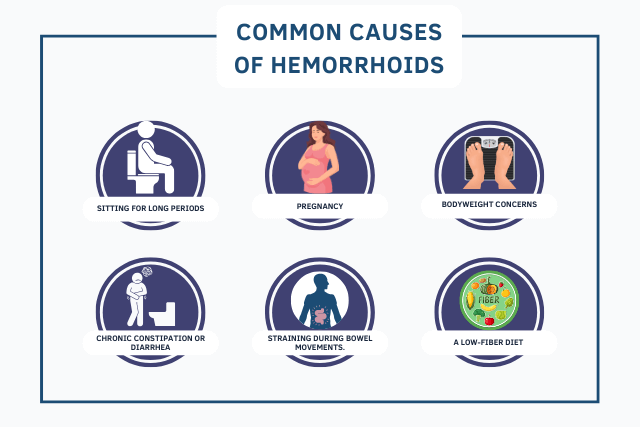Hemorrhoids are a common yet often misunderstood health condition that affects millions of people worldwide. If you’re dealing with them or know someone who is, you might have questions about their causes, symptoms, and whether they are contagious. In this article, we’ll dive deep into understanding hemorrhoids, their causes, and, most importantly, whether they can be passed from one person to another. So, let’s explore the facts and clear up the confusion.
What Are Hemorrhoids?
Before addressing the question of whether hemorrhoids are contagious, it’s essential to understand what they are. Hemorrhoids are swollen veins in the lower part of your rectum or anus. They can develop internally (inside the rectum) or externally (around the anus). These swollen veins can cause discomfort, pain, and even bleeding, particularly during bowel movements. Hemorrhoids are common and affect people of all ages, though they are more common in individuals between the ages of 45 and 65.
In most cases, hemorrhoids are caused by increased pressure on the veins in the rectal and anal areas. This pressure can arise from several factors such as straining during bowel movements, sitting for long periods, being higher weight, or experiencing chronic constipation or diarrhea. Other lifestyle factors like poor diet or lack of exercise can also contribute to the development of hemorrhoids.
Are Hemorrhoids Contagious?
The short and clear answer to the question is no, hemorrhoids are not contagious. Hemorrhoids are not a bacterial or viral infection that can be transmitted from person to person. They are a physical condition that arises due to increased pressure on the veins in your rectal or anal area. Since hemorrhoids are not caused by a pathogen, you cannot “catch” them from someone else.
However, it’s crucial to understand why this myth exists and why people might believe hemorrhoids are contagious. Some people may mistake hemorrhoids for other more contagious conditions, such as sexually transmitted infections (STIs) or skin infections. But unlike these conditions, hemorrhoids don’t spread through direct contact or through contaminated surfaces.
Rectal Health
When discussing hemorrhoids, it’s important to consider rectal health in general. While hemorrhoids themselves are not contagious, certain factors that contribute to their development may also affect your overall rectal health. For instance, poor hygiene or certain behaviors that lead to irritation and pressure in the rectal area can create an environment conducive to other conditions. However, these conditions are unrelated to hemorrhoids and are often the result of infections or inflammatory issues, which can sometimes be contagious.
Anal Health
Anal health is another essential aspect to consider when looking at hemorrhoids. Like rectal health, anal health is critical in preventing hemorrhoids from developing or worsening. Practices that involve poor hygiene or constant irritation to the anal area can cause discomfort, but they won’t cause hemorrhoids to spread from person to person. Instead, maintaining proper hygiene and adopting a healthier lifestyle can prevent both hemorrhoids and other anal health issues from becoming problematic.
What Causes Hemorrhoids?
Now that we’ve established that hemorrhoids are not contagious, it’s important to understand what leads to their development. While there’s no single cause of hemorrhoids, several factors can increase your risk.
1. Straining During Bowel Movements
One of the most common causes of hemorrhoids is straining during bowel movements. This can happen if you’re constipated or have difficulty passing stool. When you strain, the increased pressure on the veins in your rectal area can cause them to swell and become inflamed.
2. Chronic Diarrhea
On the flip side, frequent diarrhea can also contribute to hemorrhoid formation. Diarrhea irritates the rectal area and causes inflammation, putting pressure on the veins.
3. Pregnancy
Pregnancy can increase the risk of hemorrhoids due to the extra weight and pressure exerted on the pelvic veins. Additionally, hormonal changes can make the veins in the rectal area more susceptible to swelling.
4. Obesity
Being of higher weight puts extra pressure on the lower part of the body, including the rectum and anus. This added pressure can lead to the development of hemorrhoids.
5. Lack of Fiber and Exercise
A poor diet low in fiber and a sedentary lifestyle can increase your chances of developing hemorrhoids. A fiber-rich diet helps keep stools soft, reducing the need to strain during bowel movements.
Bowel Health
Maintaining good bowel health is one of the best ways to prevent hemorrhoids. Eating a balanced diet with plenty of fiber and drinking enough fluids can help ensure regular, easy-to-pass stools. If you struggle with constipation or diarrhea, addressing these issues promptly can minimize your risk of developing hemorrhoids.

Symptoms of Hemorrhoids
Understanding the symptoms of hemorrhoids is crucial for anyone who suspects they might have them. Common symptoms include:
- Pain or discomfort around the anus
- Itching in the rectal area
- Bleeding during bowel movements
- Lumps near the anus
- Swelling or tenderness in the anal region
These symptoms can vary from mild to severe, and while hemorrhoids are not dangerous, they can cause significant discomfort. If you experience any of these symptoms, it’s important to seek medical advice, as they could also be signs of other health conditions.
How to Prevent Hemorrhoids
Although hemorrhoids are not contagious, you can take several steps to prevent them from developing or recurring:
- Increase Fiber Intake: Eating a diet rich in fiber helps soften stools, making bowel movements easier and reducing the need to strain.
- Drink Plenty of Water: Staying hydrated helps prevent constipation, which can lead to hemorrhoids.
- Exercise Regularly: Staying active helps improve circulation and promotes healthy bowel function.
- Avoid Sitting for Long Periods: If you sit for extended periods, particularly on the toilet, it can put pressure on your rectal area and lead to hemorrhoids.
- Maintain a Healthy Weight: Reducing excess weight can decrease the pressure on your rectal veins, lowering your risk of developing hemorrhoids.
- Practice Good Hygiene: Keeping the anal area clean and dry is essential for preventing irritation and swelling.

Anal Irritation
Anal irritation, while not contagious, can lead to increased discomfort and possibly worsen hemorrhoids. Practicing good hygiene and avoiding harsh chemicals or soaps in the anal area can help prevent irritation, which could otherwise make existing hemorrhoids more uncomfortable.
When to See a Doctor
If you have symptoms of hemorrhoids that do not improve with home treatments or over-the-counter remedies, or if you experience significant pain or bleeding, it’s important to consult ahealthcare professional. They can diagnose the condition, rule out other possible causes, and recommend the most effective treatment plan.
Treatment options for hemorrhoids may include:
- Over-the-counter creams or ointments to reduce pain and swelling
- Warm baths to soothe the affected area
- Surgical procedures in severe cases, such as hemorrhoidectomy or rubber band ligation.
- Laser Hemorrhoidoplasty (LHP®): A minimally invasive procedure that uses laser technology to treat hemorrhoids, offering a quicker recovery time and less post-procedure discomfort.
Hemorrhoids Are Not Contagious
In conclusion, hemorrhoids are a common condition that many people experience, but they are not contagious. They are caused by increased pressure on the veins in the rectal and anal areas, and they do not spread through contact with other people. Understanding the causes, symptoms, and prevention methods can help you take the necessary steps to manage hemorrhoids effectively. If you’re experiencing symptoms of hemorrhoids, remember that treatment options are available to help you find relief and improve your quality of life.
By following a balanced diet, staying active, and maintaining good bowel and anal health, you can significantly reduce the risk of developing hemorrhoids. Always seek medical advice if you have concerns or experience persistent symptoms.




